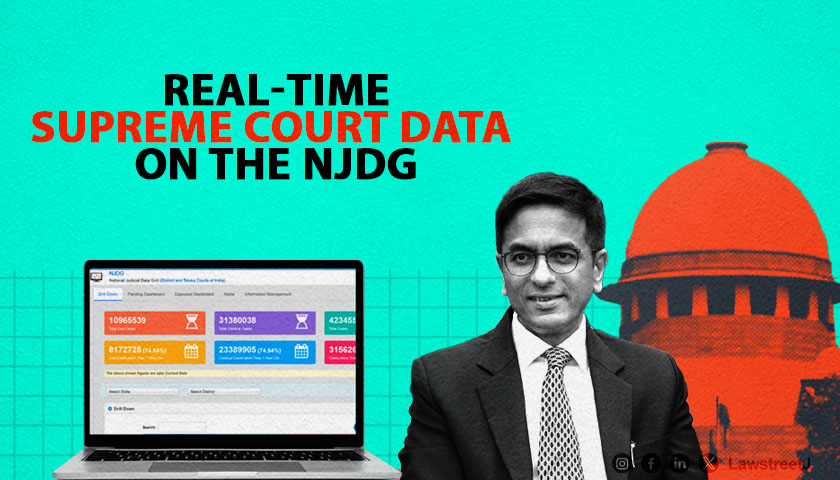NEW DELHI: Chief Justice of India D Y Chandrachud on Thursday announced that the Supreme Court will be now on the National Judicial Data Grid (NJDG), which tracks pending and disposed-of cases in courts across the country.
As soon as the bench assembled, the CJI said he has an announcement to make and it is a historic day, as data of the apex court will be uploaded on the NJDG on a real time basis.
A small announcement. It is a historic day. It is a unique and informative platform which is developed by the NIC and in-house team of the Supreme Court, he said.
The CJI said that at the click of a button one can see real time information on pendency and disposal of cases, year-wise, total pendency of registered and unregistered cases, and also number of cases decided quorum- wise.
He said that the uploading of data on the NJDG will ensure transparency and accountability in the judicial domain.
The Chief Justice said 583 cases were currently pending before three-judge benches and he will soon set up benches to hear them. According to the data, 288 cases were pending before five-judge benches and 21 cases before seven-judge benches, and 135 cases were pending before nine-judge benches.
As per the data, in the current year, 37,777 cases were instituted in the Supreme Court and 36,164 cases have been disposed of so far.
The data further showed that 5412 cases were instituted in the Supreme Court last month and 5033 cases were disposed of.
The total pendency of registered cases is 64,854 and the total pendency of unregistered cases is 15,490.
With Supreme Court of India onboarding the National Judicial Data Grid (NJDG) portal, the flagship project of the e-Courts project completes the full circle. Now we have all three tiers of Indian judiciary on NJDG portal. NJDG is recognized as a significant innovation under the ease of doing business initiative of the Government of India, a press statement from the SC stated.
The NJDG portal is a national repository of data relating to cases instituted, pending and disposed of by the courts across the length and breadth of the country.
In a message, Prime Minister Narendra Modi, on X, said, Laudatory step by the Supreme Court and CJI DY Chandrachud Ji. Such harnessing of technology will further transparency and enhance the justice delivery system in our country.
According to the press statement, NJDG has been developed by National Informatics Centre (NIC) in close coordination with the in-house software development team of the Computer Cell, Registry with an interactive interface and analytics dashboard.
With this, the entire database shall be periodically updated on the NJDG portal. To date the NJDG portal remains unparalleled, and the same is accessible at a click of a button to its citizenry. NJDG is sui generis as it has brought transparency, and accountability within the realm of the Indian judicial system by sharing all relevant data of cases instituted, pending and disposed of, it said.
Since the launch of the NJDG portal, the benefits of the NJDG portal can be summed up as under:
* increased transparency
* accountability and responsibility
* improved efficiency
* increased coordination
* informed decision making
* optimum deployment of resources and manpower
* single source of data
* huge potential for high-quality research work
















